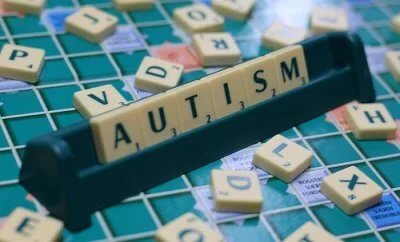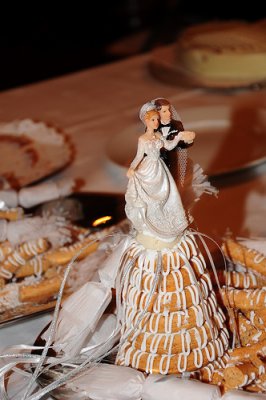“My Life With Asperger Syndrome” – A Case Study

By: Jesper Sehested
There are so many articles about Asperger Syndrome. But what is it really like to live with?
In December 2016 Piers Tyson* was diagnosed with Asperger syndrome, now officially called autism spectrum disorder or ASD here in the UK. This is his story.
*name changed for privacy
Receiving the Diagnosis
When the psychologist told me I had autism spectrum disorder level 1, corresponding to Asperger Syndrome, I actually felt liberated.
Asperger Syndrome explains my “otherness” compared with those around me. And I was relieved because I didn’t know what to do if it was something else.
You see, I had asked my doctor for a referral to a psychologist after I had numerous lengthy conversations with my elder son, who himself received an Asperger’s diagnosis. He and I are very alike, and as we talked I felt my own life’s patterns, challenges, experiences and feelings falling into place.
An Autistic Child at School
Throughout my life I’ve felt that I’m not quite the same as most other people.
When I was very young I preferred reading and solo pursuits over group activities. Although I had a few friends, I wasn’t always comfortable with others my age.

By: Nikita
And at school I seemed to struggle more than others, which was odd because I had no trouble understanding the science books I used to borrow from the library. I now think this was because I learn differently, but then I thought I wasn’t as clever as everyone else.
I was also different because I was not as good at sports like everyone else at my boarding school. These activities didn’t interest me anyway.
As time passed I was bullied a little, making me feel isolated as well as anxious and afraid.
But after fifth-year exams I found a set of barbell weights and both enjoyed and was quite good at weightlifting. I think I enjoyed competing against myself. Later I became interested in karate, which deepened my absorption in focussing against myself.
When people who had previously pushed me around saw I could do things they couldn’t, their attitudes changed. But I remained pretty much a loner and still didn’t feel comfortable socially.
The Challenge of Asperger’s in the Workplace
The challenges really started when I left school and started work. I had no difficulty finding a job, and the work wasn’t difficult. But I just couldn’t get in gear to do it. People told me I was bright, but my performance exasperated managers.
Life felt like a guessing game whose rules I didn’t understand.
Things first started to improve when computers appeared on desks at the end of the 1980s. I found it satisfying to develop ways of automating things with greater speed and accuracy. Problem solving is more natural to me than struggling with existing processes.
I’ve learned that to follow processes effectively, I need to understand them in detail. This is a problem when people expect you just to get on with it.
After varied IT experience, I settled into information security, which feels like where I belong. Things aren’t miraculously perfect, but there are less difficulties and most are more easily overcome.
Having a social life when you have Asperger’s

By: Koze
I’m generally OK in small groups. But conversation with more than two or three people is hard because of too much information to process in real time.
I can’t always take in what somebody says, even though I listen and hear all the words.
I also seem to be on a different wavelength – humour, reasoning, perception. Indeed, most communicating and thinking processes.
[Read more about what it’s like to socialise when you have Aspergers syndrome in our connected piece, “Characteristics of Aspergers” ].
Relationships With Asperger Syndrome
I didn’t lack the teenage yearning to have a girlfriend, but I did lack the confidence. Feeling mostly like an outsider, and often being treated like one, the idea that any girl might be interested in having a close relationship with me just never entered my mind. I now wonder if my general inability to read social and other personal cues meant I simply didn’t recognise the signs a girl was interested.
Just before turning sixteen I finally got together with my first girlfriend. I guess it’s not unusual that this first time is emotionally too intense, and it certainly was for me. Not many weeks after, probably because I was too serious, she ended the relationship. I think my inexperience, coupled with my emotional “black-and-whiteness”, made this inevitable.
For about the next fifteen years I went through a larger scale version of the same kind of pattern
with relationships.
My simplistic outlook and emotional intensity just didn’t seem to work with girlfriends. I would be completely absorbed and attuned to the expectation that a relationship would be permanent, and was hurt more as a result when it wasn’t.
Marriage and Parenthood with Aspergers Syndrome

By: L.C. Nøttaasen
I was almost thirty before I met the woman who would become my wife.
This relationship was built on a great deal of mutual understanding and trust, though I was still decades away from learning about my Asperger syndrome.
When our son was born, I knew instantly and completely what my real priorities were. I think this is something universal for all new parents, but to me, it was like waking up to what really mattered.
I believe my Asperger’s personality and outlook focussed me as a parent, because despite still lacking confidence I had no fear or hesitation about my responsibilities.
Asperger’s and Other Mental Health Issues
All my life, trying to understand and follow the rules and expectations of society has caused me embarrassment, confusion, frustration and even mental health issues.
Lacking the instinctive awareness of others leads to stumbling into situations without time to prepare yourself. Occasionally some of the people around you exploit this by manipulation or bullying.
Although being pushed around by others isn’t unique to people with Asperger’s, I think our blindness to the normal rules of society makes us more prone to these problems. I believe depression is prevalent among us because of this.
During my early thirties several of these problems converged and I became unable to function properly. My judgment and reactions to other people were becoming erratic, and I was “seizing up” inside. This reached crisis point.
After being diagnosed with anxiety and depression I was given full-time group psychotherapy which helped me unravel my emotional mess. Several years later I received cognitive behavioural therapy (CBT), which was again very helpful by effectively training me to handle stressful situations better.
The Biggest Myth About Asperger’s
There is still a general view that autistic people are unemotional and not empathetic.
Far from being unemotional, our black-and-whiteness applies equally to our feelings, which tend to be polarised.
It’s not at all that we have no empathy. Instead, I find my tendency to take things literally simply makes empathy an all-or-nothing experience. In fact mostly I empathise very strongly, sometimes to the point of feeling pain.
Sharing My Asperger’s Diagnosis
I’ve been generally open about my Asperger’s diagnosis with people – family, friends, colleagues and management – because it seems sensible for those around me to know the reasons for my odd ways. And since people seem to be genuinely interested, I feel encouraged to spread awareness about autism.
In concluding this account of my experience as someone with Asperger syndrome, I emphasise that this case study is not comprehensive. First, I don’t remember everything; and second, I believe I have much yet to discover.
This is my personal story, and while my experience may resemble someone else’s to some degree, everybody – autistic people included – is different.
I have been lucky that during my life I’ve encountered numerous people who seemed to recognise some potential in me, and who have understood and accepted me for who I am. Not everybody is this fortunate, which is another reason why I feel it is important to speak up about autism.
On a humorous note, when I received the written report of my diagnosis, I saw that my formal Asperger Score is 42 (out of 50). It took me a few minutes for the penny to drop – this is the answer to life, the universe and everything in The Hitchhiker’s Guide to the Galaxy!
Worried you might have Asperger’s? Harley Therapy connects you with top counselling psychologists in central London locations. Not in London, or even the UK? Have a chat with an experienced counsellor over online using our booking platform.
Have a question about living with Aspergers, or want to share your own experience? Use the public comment box below.





Your story is almost a mirror of my life. I did the testing when I was 63 after talking with my son. I scored 44. At last I had an idea of what was going on, why I never fit in, why my mind did such strange things. And, especially, why I could not change it, no matter how much I drank or his many drugs I took.
When my boys were born, my first one when I was 34. My boys were a revelation. They are my focus, my anchor.
Hi Sean, thank you for this share! Children are wonderful, they show us are true value, beyond labels.
Maintaining eye contact and use a prop such as a glass of lemonade at a social gathering to look away. Far field where your focused on something behind the person is a good way to also appear deeply involved.
Tolerance and moving away from annoying situations with offering to help out or something like going to the toilet
Let people talk about themselves and ask them to tell you more about a subject your half interested in. Suddenly you become the one they feel is right, as you massage their ego and dull lives.
Talking to groups of people is easy after you realise they are generally mediocre, want validation and the less you say the better your get on.
How to win friends and influence people is a great read.
44 years telling world you have Aspergers is like teaching rocket science to my dog.
The world at large needs structure as part of their identity, they need to feel superior and when they manipulate us, only in their end game checkmate do they realise their mistakes-but to save face you never hear about this.
I’ve had partner & 2 children for 19 years, so don’t fit narrative.
Dan, I really got it ” telling others you have ASD or Aspergers is like trying to teach rocket science to a dog”.
I’ve lived with my Asperger husband for 53 years. About 30 years in I was able to put a term to his eccentric behavior. I’ve read Tony Atkinsons book , I’ve been to two conferences on Aspergers. My husband has never been diagnosed nor does he appreciate my refernces to Aspergers. Knowing what is going on with him does in some ways help me predict and understand him. He knows he is eccentric and realizes somehow he is at odds with the world. I wish there were more organizations for high functioning ASD Adults and family.
I have told family and friends that Alex is ASD , it is futile for them to comprehend. You need to live it 24 /7 to see the patterns of behavior. It is not something in most individuals experience . I’m a teacher, it was not until I had a student diagnosed with Aspergers did I make the connection that this was what was going on with my husband.
Hi
I recently realized the same about myself after much thought and worrying about my two kids who both have similar issues to me, no doctor ever labeled them anything but with depression and anxiety. I saw these things in them before myself; and as i learn about them ive learned so much more about me. however iam 54 and this has been a wide awake moment of never being able to put my finger on why – many diagnoses of depression anxiety feeling like im always off emotionally numb people misunderstanding me, be called distant and cold & how i hated pda and hand holding not big on touching or hugs, i also have rage type moments that have been in the past quite shocking, then ruminate and be stuck for days and weeks on end. i just dont know what happens now though fr.
I’m 50 and my cousin and wife came up to me suspecting I have ASP. Now that I’ve read this/ your page here, I am shocked that almost all symptoms are to the point. Only two were not:
a. I am touchy and ok with people who are
b. I refused to feel like an outsider, although many times in my life bullies tried to push me into that situation. I did fight with my fists (once) and (always) words to the point that even bullies or irritated ones considered to leave me alone.
What didn’t resonate with me:
1. a. “Special interests”: I mean, that should be the norm, no? What is someone without a special interest: a plant?
b. “focused interest can completely change and move on to another topic”: This should be ultra-normal, too. No?
2. I know it’s discussed and not agreed on but I’d strongly seperate ASP and autism.
3. “Signs of Apserger’s will have been present since childhood. The autism spectrum doesn’t just suddenly develop later in life.” Not at all in my case: My symphtoms appeared at the age of 19 when I moved from Istanbul (Turkey, 13 million) to Heidelberg (Germany, 130.000). It was a culture shock. I came from a über-social life to a place where I couldn’t find a real friend for a very long time. I started speaking 2-5% of the amount used to speak. I’m disappointed to not have found something about “a later in age developed ASP”
I thank you for this perfect page and information.
BTW: I always reject cookies. ASP? 😛
Because I can’t change my previous comment, I make a new one:
What I expected to read as a symptom but couldn’t:
“A love for extreme details”: f.e. noting things that are interesting to me, knowing that, if I’d share them with others, they would disappear instanly/ politely to never appear to me again.
Otherside of the coin:
– Some details are very helpful for my shadow work though.
– And some people write books on such details and their works become bestsellers.